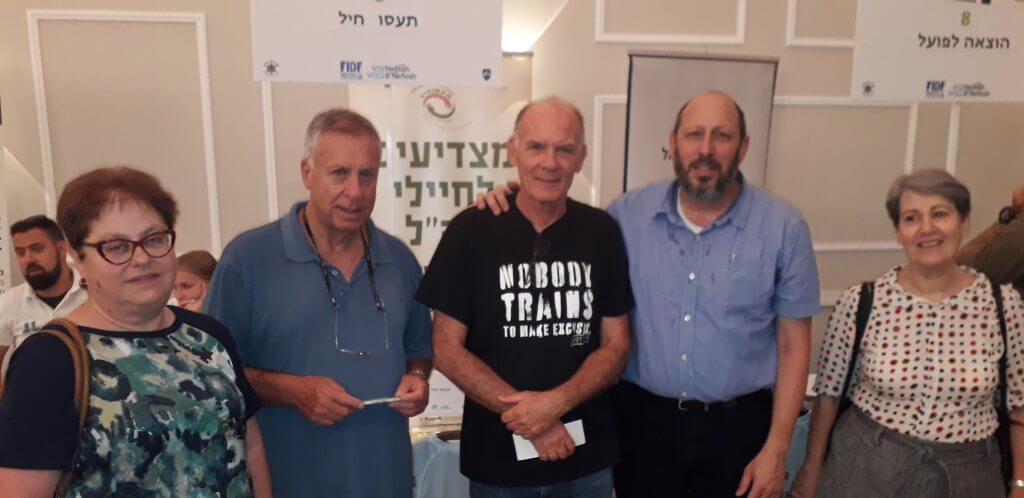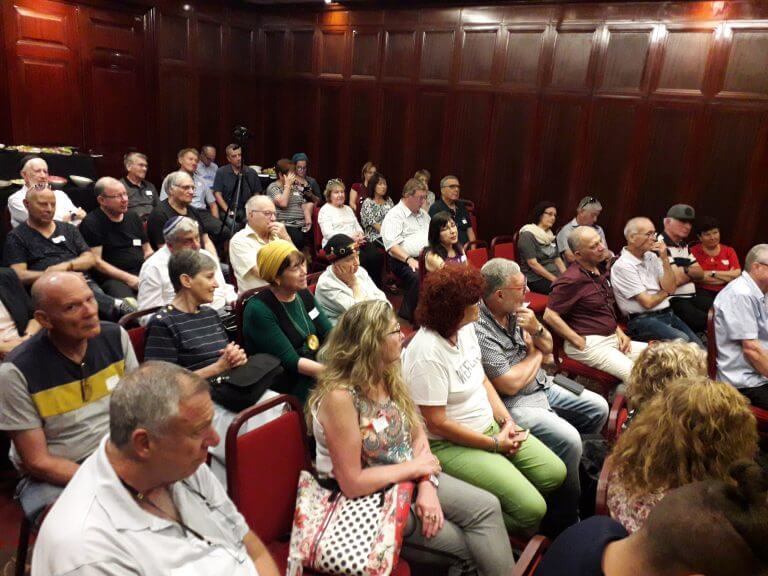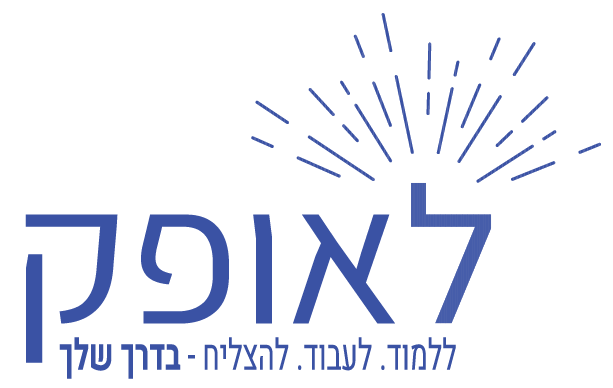Mentoring, Professional Training, Enrichment Activities, Individual Attention That’s what Ta’asuchayli’s volunteers give to each of our soldiers day in and day out
Amidst the COVID-19 pandemic, our phones are ringing off-the-hook with urgent requests from hundreds of desperate at-risk soldiers, lone soldiers, and discharged soldiers. They are hoping that someone will help them find work. And here are Ta’asuchayil’s volunteers day in and day out, working around the clock and ready and willing to help.
Ta’asuchayil, was launched in 2016 in response to a growing need among at-risk soldiers to find employment during their military service. These are soldiers identified by the IDF as coming from weak socio-economic backgrounds.

In order to help them complete their military service with pride, the IDF grants them work permits. The challenge is to find them employment, near their homes, based on their skills, and within the often unpredictable time periods in which their work permits are valid. In the past year, again according to need, we expanded the program to include young post military adults ages 18-26 from similar backgrounds.
But please do not assume that Ta’asuchayil is merely another employment placement service! Rather, it is the only such program offering a solution for the unique needs of at-risk soldiers and operating in full cooperation with all the exigent IDF bodies. We aim not only to assist these young people create a financial base for themselves and their families, but also to provide them with mentoring and emotional support, helping them to overcome difficulties and experience success in all their employment-based experiences, which propels them forward to complete their military service and even beyond. They gain valuable skills that they can apply when they begin their civilian life.

People with Big Hearts
Since its conception, Ta’asuchayil has assisted some 7,000 young men and women in securing employment during their military service. The key to this achievement, according to the directors, is the wonderful corps of volunteers — people whose hearts are full of generosity. “Without our volunteers, we could not help so many soldiers,” declares Aryeh Zilberberg, the founder and director of Ta’asuchayil. “Just as ten fingers cannot plug a leak in a pail full of holes – without volunteers we would not be able to serve more than 30% of our soldiers – at the most. “
Ta’asuchayil formed its corps of volunteers in partnership with Shalem Israel’s largest volunteer organization. Today, dozens of volunteers all over the country play an important role in our program. “Since our volunteers are our heart and soul – it is vital that we provide them with the tools required to maximize the aid they offer to these young people,” says Aryeh.
Every child needs an adult who believes in him!
All LaOfek’s programs are characterized by facing reality unflinchingly, seeing the entire picture, and remembering that our beneficiaries are people in vulnerable situations. This is clearly evident in Ta’asuchayil too.
Our volunteers play a vital role in fulfilling an immediate goal as well as the longer-term one. Their impact on our soldiers is tremendous – not only due to the practical aid they offer, but even more so thanks to their emotional support. “Most of the soldiers who turn to us have previously had contact with the social authorities and have lost faith in them. Thus, the volunteers have a great advantage over the professionals”, says Aryeh.
According to him, as soon as a soldier realizes that the person he is speaking with wants to help him of his own free will, with no strings attached, his defenses are lowered, trust sets in, and cautious optimism begins to sprout. “Many of them tell us that, in retrospect, this was the first time they felt that someone really listened and cared.”
And someone does care!
Our volunteers are much more than a conduit connecting employers and soldiers seeking work. Yes, they help them find jobs, but beyond that they listen, counsel, share their life-experience, provide non-stop encouragement, and gently push when necessary. They give the soldiers hope and are not willing to give up on them! Not because they are required to as part of their job, but because they want to – which makes all the difference!
Supporting the Supporters
Proof of this special point of view is the basket of resources devoted to the volunteers, among them: professional training, supplementary courses and enrichment activities, a sympathetic ear and help in providing solutions to challenges.
“We realized quite soon that for the program to maximally operate – on the one hand, we must treat our big-hearted volunteers like any good businessman treats his department heads, while on the other hand, we must remember that this is the first time they are coming in contact with the harsh reality that our soldiers face. This is not always emotionally easy,” explains Aryeh.

Proof of this special point of view is the basket of resources devoted to the volunteers, among them: professional training, supplementary courses and enrichment activities, a sympathetic ear and help in providing solutions to challenges.
“We realized quite soon that for the program to maximally operate – on the one hand, we must treat our big-hearted volunteers like any good businessman treats his department heads, while on the other hand, we must remember that this is the first time they are coming in contact with the harsh reality that our soldiers face. This is not always emotionally easy,” explains Aryeh.
However, this complexity does not deter him. Instead, it led him to join forces with Shalem, a body which trains approximately 17,000 volunteers throughout Israel. Together, they created a volunteer-recruitment system, with a special program devoted to the training and empowerment of the Ta’asuchayil volunteers. The subjects covered are varied, determined by the needs arising in the field. For example, the volunteers recently completed a remote course with psychologist Dorit Raz using the “Dolphin Model”. The course provided them with tools to help them grow personally, and practical tools to pass on to the soldiers they mentor.
